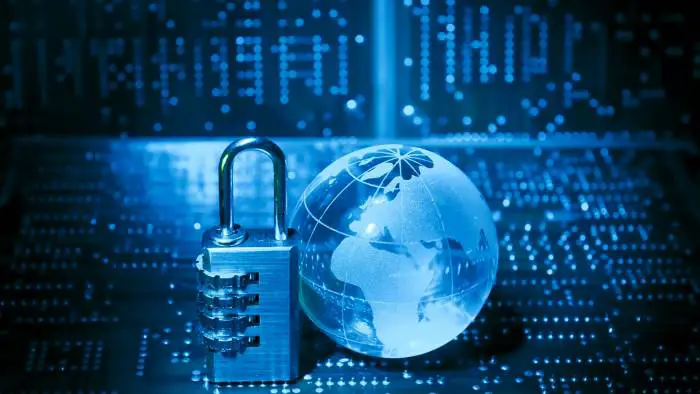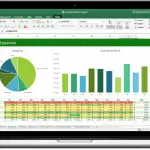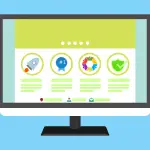Just like food and water, internet has become the basic need of computers. Internet is very useful as it helps in every way. Along with pros, it also has some cons. Internet security is one of the major issues these days. Everyone is concerned about their sensitive data whether it is stored on PCs or in online accounts. These concerns can be secured by just following few simple steps of protection. Following are the 9 simple steps you secure your personal computers and online accounts:
1. Delete the Pre-installed Applications and Software
Pre-installed applications and software has become dangerous since Lenovo systems got attacked by Man-in-the-Middle. Man-in-the-Middle also called MiM, is a malicious software that alters the communication between two systems as if they are actually conversing in that way. Get rid of the bloatware as it is of no use and can be attacked by third party easily. It is a useful practice.
2. Use Secured Browser
Internet users require a web browser to browse daily. They need to choose browser very carefully as wrong choice of browser may bring many cookies and other harmful attacks for their systems. Right choice of browser protects system from many malwares and thus safeguards. Web browser should be installed according to the age of your system. And for the best choice Google Chrome is on top of the list. Google Chrome has Sandbox through which it provides security to the systems. Moreover second choice should be Mozilla Firefox. Basically user should be aware of his requirement and then match those requirements with browser before installing it.
3. Mighty Password
Whether we talk about systems or online accounts, they are facing security risk if their password is weak. Following points should be considered while choosing a password.
- Password should contain more than 8 characters.
- Lower and upper case alphabets should be used to make password stronger.
- Usage of such words which can easily be remembered by user.
- Symbols, numeric figures or punctuation makes password more complex.
- Always use different password for different accounts. If it is difficult to remember different passwords for different account, use Password Manager.
4. Enable the VPN
In order to secure internet and get protection fro privacy and protection against malware, Virtual Private Network (HotSpot shield) should be enabled. It is a free software (also have public Wi-Fi security) and it provides security as it safeguards from intruders and doesn’t allow any malicious interruption from same Wi-Fi network.
5. Two-Factor (2F) Authentication
In routine, users may come across many cyber criminals at every nooks and corner even without knowing. For such criminals every online account whether it is of Google, Apple, Microsoft, Yahoo or of Facebook, it should be protected with 2 factor authentication. For it, user would be needing a password at the first stage of login and then a pin code will be sent to the user’s most trusted and secured device such as their personal smartphone etc, for authentication. It is the most effective way to protect your online accounts and social networks from hackers.
6. Security from Phishing
Phishing is one of the cyber crime that is very common, in it user is asked to give his/her personal information to the illegal websites. It can further be used for any fraud. Following are they points to consider in order to protect your system from such websites
- Unknown emails/spams that ask personal or financial information should not be opened.
- If you are doing financial transaction always check “HTTPS” in the URL bar it means it is secured. If it is “HTTP” then it is not secured.
- Don’t even give inputs in the pop-ups.
- Even if you know the email’s recipient, don’t send personal or financial information there.
- Check your bank statements regularly.
- Personal computers should be protected with anti-virus programs.
- Ensure that anti-virus is strong.
7. Use HTTPS Everywhere Plugins
HTTPS plugin is basically an invention of Electronic Frontier Foundation. It converts the insecure websites into secure ones by just using “HTTPS” extension. So the “HTTPS Extension Everywhere” plugin should be used in every web browsers for the security purposes.
8. TOR Browsing
Tor is short for The Onion Router and was initially a worldwide network of servers developed with the U.S. Navy that enabled people to browse the internet anonymously. Now, it’s a non-profit organization whose main purpose is the research and development of online privacy tools.
TOR is a software, free of cost. It doesn’t let cyber criminal or even intelligence agencies know about one’s browsing history. Thus it should be used for anonymous browsing.
9. Physical Security of Systems
In order to ensure to physical security of the personal computers, BIOS program and password should be used. BIOS program helps system in booting process and initialization of hardware. It is important to memorize BIOS password as it cannot be retrieved easily. Moreover data should not be stored in third places or in USB’s as these sources cannot protect data thus you may loose it.
To Read More: Key Differences between Shared Hosting and Dedicated Hosting Services




I have read your article carefully and I agree with you very much. This has provided a great help for my thesis writing, and I will seriously improve it. However, I don’t know much about a certain place. Can you help me?
Thanks for sharing. I read many of your blog posts, cool, your blog is very good. https://accounts.binance.com/sv/register?ref=53551167
The point of view of your article has taught me a lot, and I already know how to improve the paper on gate.oi, thank you. https://www.gate.io/zh/signup/XwNAU
Thank you very much for sharing, I learned a lot from your article. Very cool. Thanks.
Thank you for your sharing. I am worried that I lack creative ideas. It is your article that makes me full of hope. Thank you. But, I have a question, can you help me?